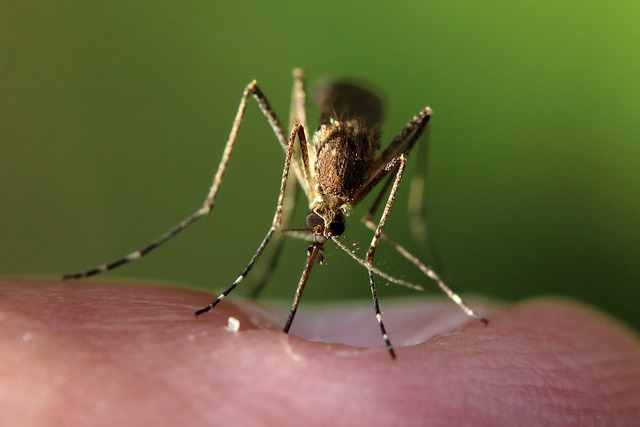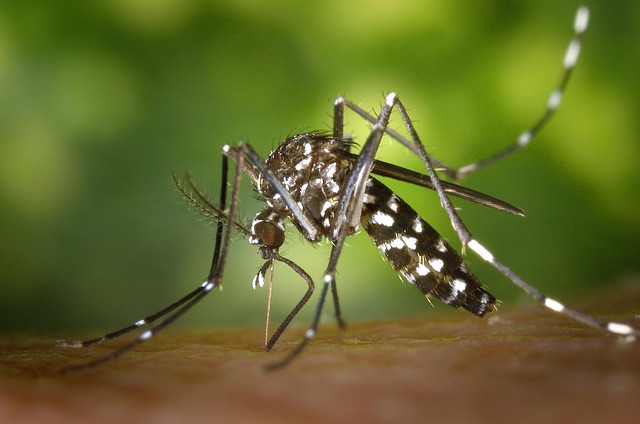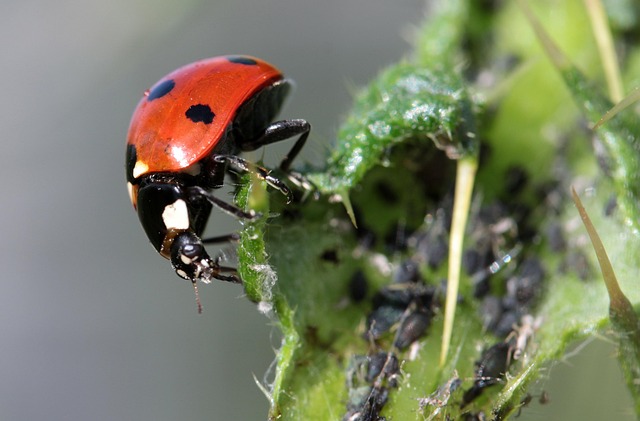Sheridan faces growing concerns about West Nile Virus (WNV), a mosquito-borne illness posing risks to human and ecosystem health due to its ideal breeding conditions. Effective residential mosquito control measures, like eliminating standing water, using screens, and repellents, are crucial for preventing WNV spread. Community-wide programs focusing on integrated pest management strategies and resident collaboration can achieve sustainable mosquito reduction, safeguarding public health in Sheridan from WNV transmission.
Mosquitoes carrying West Nile Virus (WNV) pose a significant health risk, particularly in areas like Sheridan. This article explores strategies to combat this issue through three key sections. First, we’ll delve into understanding WNV and its impact on the community. Next, discover effective residential mosquito control measures for individuals to safeguard their homes. Lastly, examine the success of community-wide mosquito reduction programs as a comprehensive solution to prevent WNV transmission in Sheridan. Implement these strategies for enhanced protection against residential mosquito control.
- Understanding West Nile Virus and its Impact in Sheridan
- Implementing Effective Residential Mosquito Control Measures
- The Role of Community-Wide Mosquito Reduction Programs
Understanding West Nile Virus and its Impact in Sheridan

In recent years, Sheridan has faced growing concerns regarding the West Nile Virus (WNV), a mosquito-borne illness that poses significant risks to both human health and local ecosystems. The presence of this virus in the area underscores the importance of robust residential mosquito control measures. With WNV potentially causing severe neurological diseases, implementing effective prevention strategies is paramount for community well-being.
Sheridan’s unique geographical location and climate create ideal breeding grounds for mosquitoes, amplifying the need for proactive residential mosquito control to prevent WNV transmission. By targeting mosquito habitats and populations, these programs aim to reduce the risk of infection for residents and animals alike. Through a combination of source reduction, elimination, and strategic treatments, homeowners and local authorities can significantly minimize the impact of WNV in their communities.
Implementing Effective Residential Mosquito Control Measures

Implementing effective residential mosquito control measures is crucial in preventing the spread of diseases like West Nile virus in areas such as Sheridan. Homeowners can play a significant role in reducing mosquito populations by taking proactive steps to eliminate standing water, which serves as breeding grounds for these insects. Regularly emptying containers, such as flower pots, birdbaths, and old tires, is a simple yet effective strategy.
Additionally, installing screens on windows and doors helps keep mosquitoes out while allowing fresh air circulation. Using mosquito repellents, both natural and chemical, can further deter these pests. In Sheridan, where West Nile virus has been a concern, combining these residential control measures with community-wide initiatives can lead to substantial reductions in mosquito-borne disease risks.
The Role of Community-Wide Mosquito Reduction Programs

Community-wide mosquito reduction programs play a vital role in managing and controlling mosquito populations, particularly those carrying diseases like West Nile Virus (WNV). In Sheridan, residential mosquito control initiatives are essential to protect public health and reduce the risk of WNV transmission. These programs often involve integrated pest management strategies that combine various methods to target mosquitoes at multiple stages of their life cycle.
By implementing these measures across entire communities, local governments and health authorities can significantly decrease mosquito breeding grounds, such as standing water sources, and disrupt the transmission of diseases. Such programs foster a collaborative effort among residents, who play a crucial part by eliminating potential breeding sites on their properties, alongside local pest control services and government agencies dedicated to public health. This unified approach is key to achieving sustainable mosquito reduction and ensuring the safety of residents in areas like Sheridan.
In Sheridan, addressing the West Nile Virus threat requires a multi-faceted approach, with residential mosquito control and community-wide reduction programs playing pivotal roles. By implementing effective measures such as eliminating standing water, using insect repellents, and participating in community initiatives, residents can significantly reduce mosquito populations and minimize the risk of virus transmission. These proactive steps are crucial in fostering a healthier and safer environment for all.
